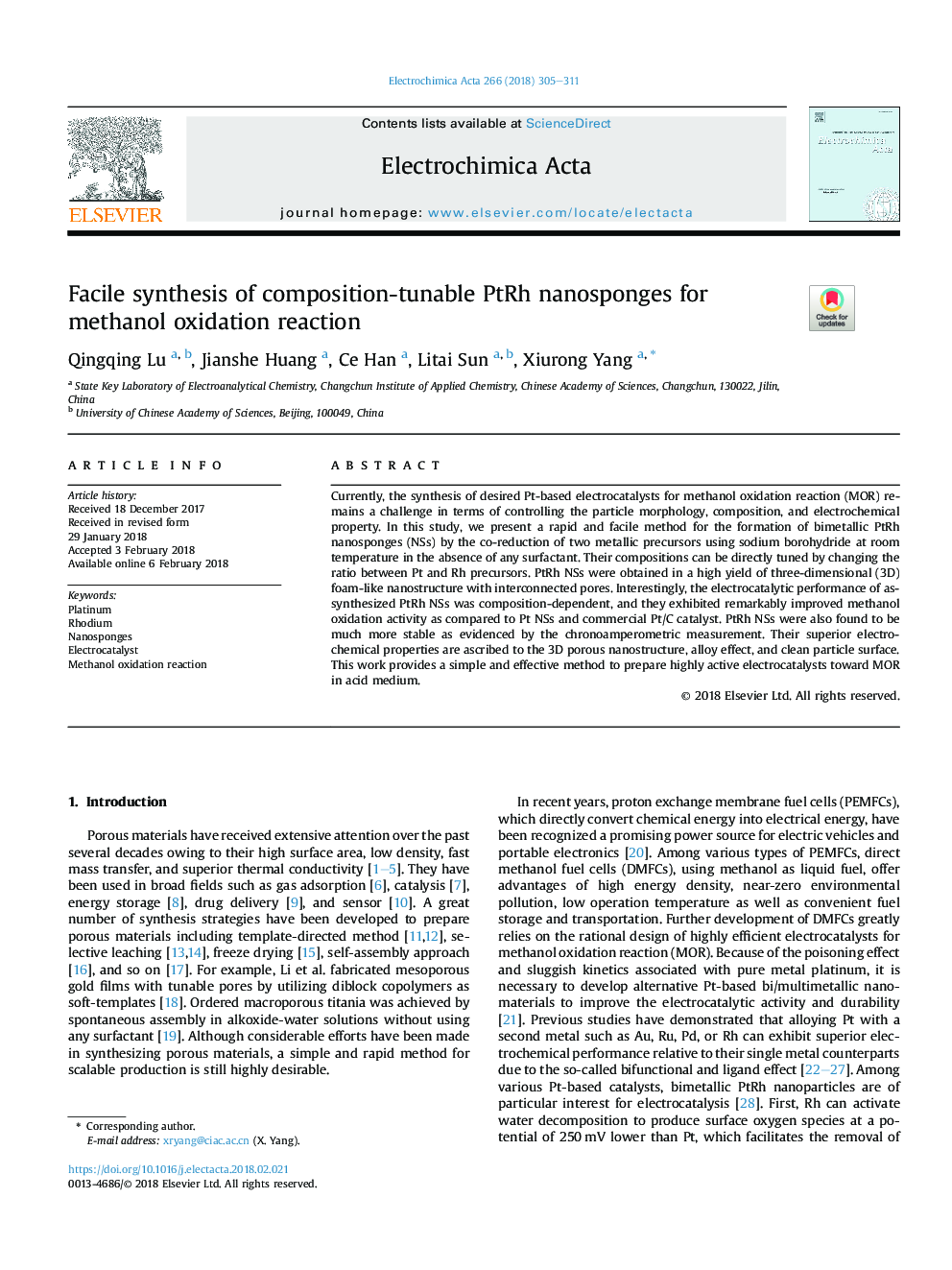| Article ID | Journal | Published Year | Pages | File Type |
|---|---|---|---|---|
| 6604028 | Electrochimica Acta | 2018 | 7 Pages |
Abstract
Currently, the synthesis of desired Pt-based electrocatalysts for methanol oxidation reaction (MOR) remains a challenge in terms of controlling the particle morphology, composition, and electrochemical property. In this study, we present a rapid and facile method for the formation of bimetallic PtRh nanosponges (NSs) by the co-reduction of two metallic precursors using sodium borohydride at room temperature in the absence of any surfactant. Their compositions can be directly tuned by changing the ratio between Pt and Rh precursors. PtRh NSs were obtained in a high yield of three-dimensional (3D) foam-like nanostructure with interconnected pores. Interestingly, the electrocatalytic performance of as-synthesized PtRh NSs was composition-dependent, and they exhibited remarkably improved methanol oxidation activity as compared to Pt NSs and commercial Pt/C catalyst. PtRh NSs were also found to be much more stable as evidenced by the chronoamperometric measurement. Their superior electrochemical properties are ascribed to the 3D porous nanostructure, alloy effect, and clean particle surface. This work provides a simple and effective method to prepare highly active electrocatalysts toward MOR in acid medium.
Related Topics
Physical Sciences and Engineering
Chemical Engineering
Chemical Engineering (General)
Authors
Qingqing Lu, Jianshe Huang, Ce Han, Litai Sun, Xiurong Yang,
